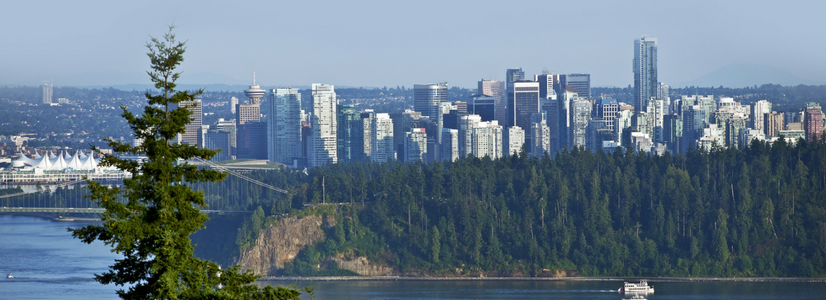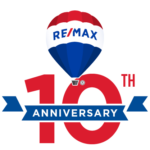Property owners received their 2017 assessment notices the first week of January.
In Metro Vancouver, increases of 30 to 50 per cent are typical for detached homes in Vancouver, the North Shore, Squamish, Burnaby, Tri-Cities, Richmond, and Surrey. Property owners with a significant increase received a warning assessment in early December 2016.
Commercial and industrial properties will likely see increases in the 15-40% range, according to Jason Grant, regional assessor, Greater Vancouver Region.
The 2017 Assessment Notice is BC Assessment’s (BCA) estimate of a property’s value as of July 1, 2016, and for new construction or substantially renovated homes, the physical condition as of October 31, 2016.
BCA is a publicly-owned provincial Crown corporation responsible for determining and reporting property value estimates for the 2,017,364 properties in its database. This is an increase of 1% from 2016. BCA started producing the assessment roll in 1974.
BCA’s assessment and a REALTOR’S® assessment. Why the difference?
BCA’s assessment and the market value determined by a Realtor may be different. Why?
Both BCA assessors and Realtors calculate market value by analyzing sales of comparable homes within a local market, and look at factors that affect value such as size of home, view, location such as on a busy or quiet street, number of bedrooms, construction quality, floor level, and garage or parking stalls.
Where every lot and every home on a street are typically the same, both BCA’s value and a Realtor’s value will be similar during stable market conditions.
Differences occur in neighbourhoods where lots have been rezoned or are different shapes and sizes, where architecture and views are unique, and where owners have made changes that BCA hasn’t yet taken into account.
When you view your assessment
Property owners can look up their assessments on e-valueBC on BCA’s website.
Details include a photo, a property description (land and buildings), the total assessed value, the previous year’s value, the legal description, and property ID.
If property details are incorrect, property owners are directed to complete and submit an e-valueBC Data Validation Form.
Property owners can also compare neighbouring properties and sample sold properties to decide whether their property has been correctly assessed.
Deadline to appeal assessment is February 1, 2017
Property owners who disagree with their assessment should do homework by:
- comparing their assessment with neighbouring properties; and
- contacting BCA at 1-866-valueBC (1-866-825-8322) and talking to staff who can make adjustments if there is an obvious error, for example if BCA included a complete renovation when there was merely a spruce-up.
Property owners who decide to appeal their property assessment should review information on the Property Assessment Appeal Board website on how to prepare for an appeal and then complete a Notice of Complaint (Appeal) Form. (Step 7)
The deadline to file an appeal is February 1, 2017.
Each year less than 1% of BC property owners appeal their assessments.
Note: you can’t appeal your taxes. You can only appeal your assessment.
For information about BC Assessment and to access e-valueBC visit: www.bcassessment.ca or phone 1-866-valueBC (1-866-825-8322).
Sample Property Value Changes in our neighbourhoods
The District of Squamish saw the greatest increase in the Greater Vancouver assessment region with a 47% increase for a detached home. North Vancouver’s Lynn Valley and Burnaby’s Buckingham neighbourhoods were close behind, with detached homes increasing 46%.
Sample Property Value Changes year over year, by neighbourhood
| Location | 2017 Assessment roll (valuation date of July 1, 2016) |
2016 Assessment roll (valuation date of July 1, 2015) |
$ change | % change |
|---|---|---|---|---|
| Burnaby (Metrotown, strata high-rise) | $608,000 | $511,000 | $97,000 | +19% |
| Burnaby (Buckingham, detached) | $2,726,000 | $1,862,000 | $864,000 | +46% |
| Coquitlam (Central, detached) | $1,325,000 | $1,000,000 | $325,000 | +33% |
| Ladner (detached) | $967,000 | $675,000 | $292,000 | +43% |
| Maple Ridge West (detached) | $735,000 | $566,000 | $169,000 | +30% |
| Maple Ridge (townhouse) | $341,000 | $265,000 | $76,000 | +33% |
| New Westminster (Sapperton, detached) | $1,132,000 | $909,000 | $223,000 | +25% |
| New Westminster (Downtown, strata townhouse) | $587,000 | $431,000 | $156,000 | +36% |
| North Vancouver, District (Lynn Valley, detached) | $1,640,000 | $1,126,700 | $513,300 | +46% |
| Pitt Meadows (detached) | $783,000 | $587,000 | $196,000 | +33% |
| Port Coquitlam (Lincoln Park, detached) | $848,000 | $620,000 | $228,000 | +37% |
| Port Moody (Newport, strata low-rise) | $493,000 | $394,000 | $99,000 | +25% |
| Richmond (Strata) | $371.000 | $301,000 | $70,000 | 23% |
| Richmond (South, detached) | $1,486,000 | $1,081,000 | $405,000 | +37% |
| Squamish (Downtown, detached) | $636,000 | $432,000 | $204,000 | +47% |
| Vancouver (East Side, detached, 33’ lot) | $1,338,900 | $947,300 | $391,600 | +41% |
| Vancouver (East Side, strata high-rise) | $827,000 | $662,000 | $165,000 | +25% |
| Vancouver (West Side, detached 33′ lot) | $2,740,300 | $1,940,800 | $799,500 | +41% |
| Vancouver (West side, strata low-rise) | $827,000 | $662,000 | $165,000 | +25% |
| West Vancouver (Ambleside, detached) | $2,740,300 | $2,144,000 | $596,300 | +41% |
| Whistler (Blackcomb Benchlands, strata townhouse) | $896,000 | $703,000 | $193,000 | +27% |
Source: BC Assessment
Additional examples may be found in these BCA news releases for Greater Vancouver and Fraser Valley assessment regions.
Did you know?
- Total value of real estate on the 2017 BC assessment roll is $1.67 trillion, an increase of 25% from 2016.
- In BC, 88% of all properties are classified with some residential component (class 1), equating to $1.29 trillion.
- Changes in property assessment reflect movement in the local real estate market and can vary greatly from property to property.
- Real estate sales determine a property’s value which is reported annually by BCA.
- BCA’s assessment roll provides the foundation for local and provincial taxing authorities to raise $7 billion in property taxes each year, which funds community services including the school system.
Property tax
Property taxation is determined by local and provincial taxing authorities after determining their budget needs and calculating property tax rates based on the assessment roll for their jurisdiction.
Municipalities determine tax rates for each property class in the spring once the assessment roll is finalized. Changes in assessment over the year don’t automatically translate into the same percentage changes in property taxes for any particular class of property or for any individual property.
Questions? Contact BC Assessment
Source: Real Estate Board of Greater Vancouver








 OPEN HOUSE
OPEN HOUSE  Sunday 30th July
Sunday 30th July
 2:00
2:00 

 "Home prices continue to rise in Metro Va
"Home prices continue to rise in Metro Va







